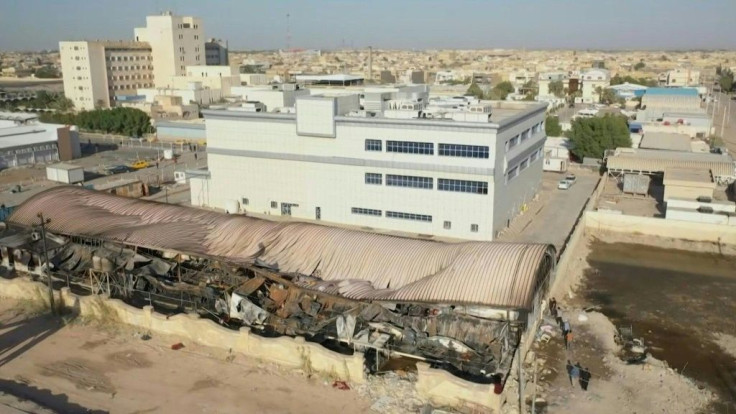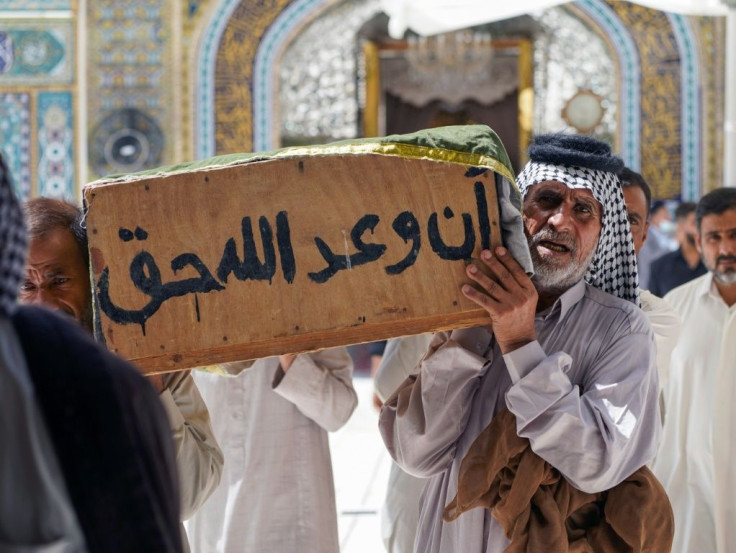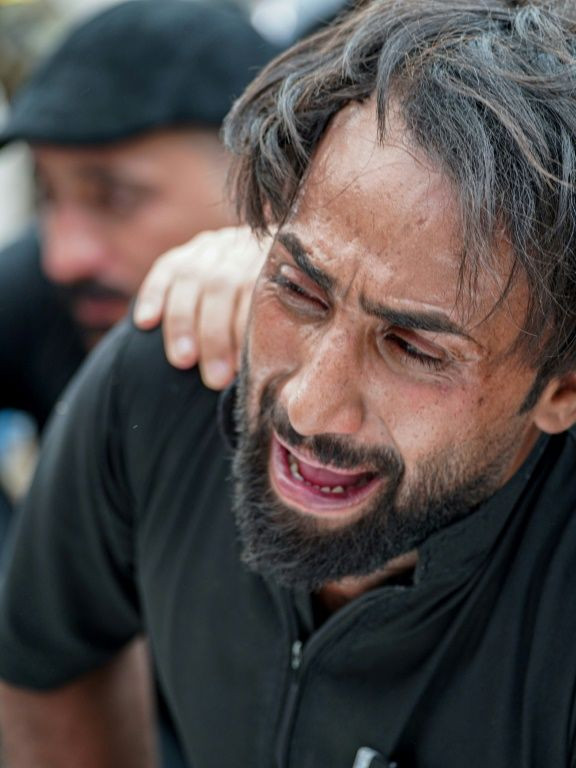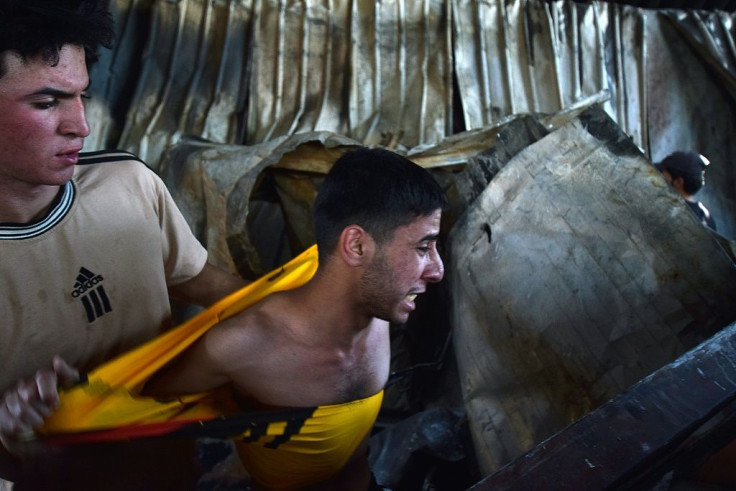Patients Turn Into Victims Of Killer Fire In Iraq That Sparked Fury
They died as flames ravaged a Covid-19 isolation unit in southern Iraq. On Tuesday, blankets covered the remains of many of the 64 victims in the country's latest tragedy.
The colourful blankets strewn across the blackened debris of the temporary quarantine facility at Al-Hussein Hospital in Nasiriyah were the last tangible markers of those who died.

Uday al-Jaberi lost four relatives in the Monday inferno caused by oxygen canisters exploding.
"I want to send a message to those who committed a crime in Nasiriyah and against our martyred families yesterday: haven't you had enough of Nasiriyah's blood?" he pleaded.
The raging fire was Iraq's second in three months, eerily similar to an April blaze at a Baghdad hospital for Covid patients in which 82 people were killed and scores injured.

This year, between January and March alone, the interior ministry has recorded 7,000 fires across the country.
War-scarred Iraq has registered more than 1.4 million cases of coronavirus and upwards of 17,000 deaths as daily infections spike.
"We don't have a government in power, we have a mafia. We have criminals ruling the country," Juberi told AFP.

In late 2019, at the height of countrywide anti-government protests, the city of Nasiriyah was referred to as the heart of the uprising.
On Tuesday, it lived up to its reputation, with hundreds of young protesters vowing to take the main square so they could hold officials accountable.

Smoke still rose from the charred rubble of the makeshift isolation ward, and scaffolding that had barely held the temporary building together had collapsed.
Relatives of victims cried and dug their faces into their palms as others ripped their clothing amid anguished screams.

"Nothing burns but hospitals for the poor that have tin roofs," Jaberi said.
"What did the Iraqi people do and what did the poor do (to deserve this)? They were only bringing their sick relatives here, under this tin roof."
In the Shiite holy city of Najaf and smaller towns such as Al-Dawaya and Al-Nasr where victims had lived, the grief of funerals quickly morphed into fury directed at provincial officials mourners accused of corruption and neglect.
One coffin in Najaf bore the Koranic words "Allah's promise is true", signalling the brevity of life.
Another, draped in green and gold tapestry, was emblazoned with the Muslim mantra: "No God but one God".
An official tally on Tuesday in local media listed the names and professions of 39 identified victims, most of them women.
At the gutted site of the burnt-out isolation unit, Abu Nour al-Shawi, an elderly bespectacled man, spoke as young volunteers frantically cleared debris and people tried to find their relatives.
"People have been suffering for 18 years and in the end people are killed while they're alive. This is an unforgivable crime," he told AFP, his voice growing louder as he became more angry.
"A patient comes in looking for treatment and he ends up being carried out in a coffin by his family."
He pointed to the frailty of the structure that collapsed quickly in the flames.
"This place is not even fit for animals," he said.
Activist Hisham al-Sumeri, who helped the relief efforts late Monday and on Tuesday, was incensed.
"We heard their screams but we couldn't help them much," he said of the victims, and accused the local authorities of negligence.
© Copyright AFP 2024. All rights reserved.




















